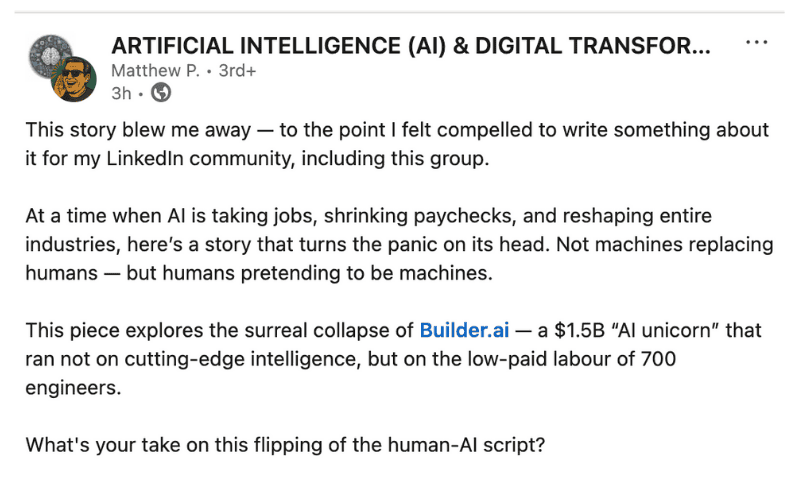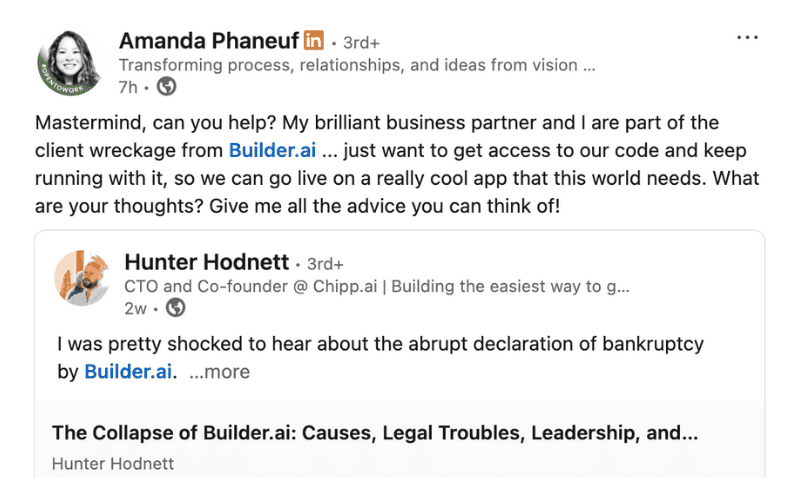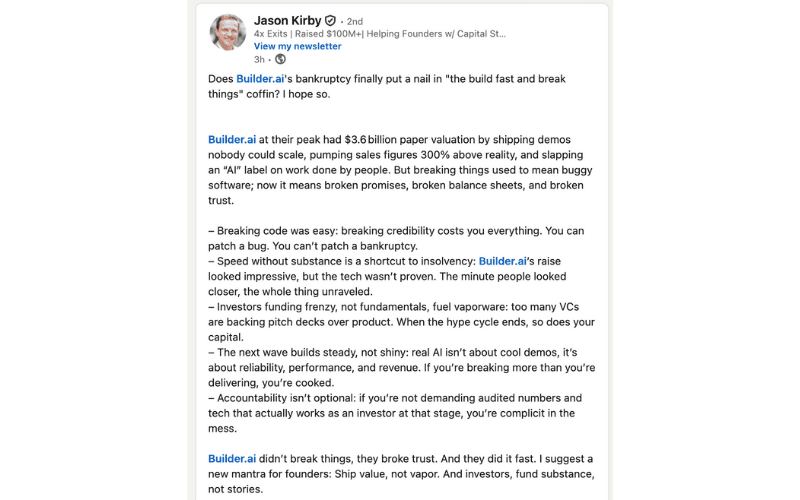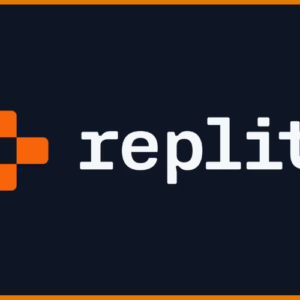A Shocking Fall from Grace
Builder.ai, one of the decade’s most touted AI firms, has crashed. The firm has filed for bankruptcy after a shocking study revealed that their “neural network” was 700 human engineers headquartered in India. Yes, you read it correctly. Behind the shimmering façade of artificial intelligence was a workforce of manual laborers putting in the hard work, line by line, code by code.
The Rise of Builder.ai: A $1.5 Billion Dream
At its peak, Builder.ai was valued at $1.5 billion and hailed as the poster child for next-generation software development. Investors, including Microsoft, invested in hundreds of millions of dollars, hoping to support the next OpenAI-level disruptor.
The Promise of Natasha
Natasha, an AI-powered solution that claims to be capable of creating and constructing apps autonomously in record time, was at the center of Builder.ai’s offering. The firm claimed it was equivalent to having a software engineer, UI/UX designer, and project manager all in one, which wasn’t the case.
Microsoft’s Big Bet
Microsoft’s rumored $455 million investment in Builder.AI signaled confidence. It was more than simply money; it was a symbol of credibility. That made the eventual collapse even more surprising.
Behind the Curtain: What Was Really Powering the ‘AI’
The Human Backbone
It turns out that Natasha wasn’t the super-intelligent machine many thought it was. Hundreds of experienced Indian engineers worked around the clock, painstakingly developing code. Sure, there was some automation to assist with clerical tasks, but the majority of the labour required old-fashioned hands on work from human engineers.
Builder.ai had skillfully disguised its human operations behind a sleek UI. Customers expected cutting-edge AI development, but what they received was a human-driven operation disguised in digital clothing.
Financial Practices Under Fire
The VerSe Connection
As if the fake AI controversy wasn’t enough, Builder.ai was discovered to be involved with VerSe, a well-known Indian IT business and between 2021 and 2024, the firms reportedly exchanged inflated invoices.
These fraudulent invoices artificially inflated Builder.ai’s revenue, making the firm appear considerably more profitable than it was. However, VerSe has denied all wrongdoing, with co-founder Umang Bedi describing the claims as “baseless and false.”
The scam came crumbling down when former staff of the company blew the whistle, showing that the majority of “AI work” was done by humans.
Bloomberg’s Investigative Report
A thorough investigation by Bloomberg confirmed the claims. What followed was a media storm, investor panic, and legal scrutiny. Bloomberg conducted a detailed investigation to confirm the claims. What ensued was a media frenzy, investor fear, and legal scrutiny.
Builder.ai revealed in a somber LinkedIn post that company was filing for bankruptcy, citing “historic challenges and past decisions” that had irreversibly ruined its financial health.
“Despite the tireless efforts of our current team and exploring every possible option, the business has been unable to recover,” the statement read.
Lessons for the AI Industry
Trust, Transparency, and the Hype Trap
Builder.ai’s failure is a perfect illustration of what occurs when marketing hype outstrips real technological capability. Startups must understand that honesty and transparency is non-negotiable in this era. Overselling AI features not only erodes confidence, but it may also get your business into legal and financial trouble.
The Bigger Picture: When Is AI Not Really AI?
AI Hype vs. Reality Check
As the race for which brands become kings and queens of AI continues, AI is frequently used as a term to acquire financing, attract users, and boost values. Every single company today is implementing or claiming to have implemented the next best AI. The Builder.ai affair has sparked a much-needed debate: is your AI genuinely independent, or is it simply software-assisted outsourcing?
What People Are Saying!



Conclusion: A Wake-Up Call for the Tech World
Builder.ai’s rapid rise and fall is more than just a failed startup story; it is also a cautionary tale. In our drive to develop and invest in artificial intelligence, we must not overlook the fundamentals: honesty, openness, and ethical accountability.
As the dust settles, the industry is left with an important question: how many more Builder.ais are out there, riding the AI wave without ever surfing it?











